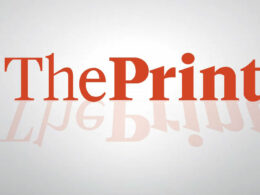2024 is expected to be a “transition year” for Boeing, possibly leading to management changes and disappointing free cash flow guidance. However, this should not be a cause for concern as the commercial aerospace giant is far from reaching its peak.
According to a research report by Seaport Research Partners analyst Richard Safran, there are a few key takeaways to consider. First and foremost, Safran believes that Wall Street is overly optimistic about the projected 2024 free cash flow. While Wall Street estimates $5.9 billion, Safran projects a more realistic $5.2 billion. Factors such as declining customer advances for aircraft and building inventories on the new 777 version will pose significant challenges.
Boeing is expected to provide more accurate free cash flow guidance when it reports its fourth-quarter numbers in early 2024. It had previously guided for $3 billion to $5 billion in free cash flow for 2023, a guidance that remains unchanged throughout the year. Currently, Wall Street projects $4.7 billion in free cash flow.
Despite the weaker guidance, it is unlikely to negatively impact the stock. Safran characterizes 2024 as a “transition year,” and believes that supply chain issues will improve in the second half of the year. Additionally, he expects the ongoing enhancement of supply chains to result in higher production rates for the 737 MAX jet.
Furthermore, Safran foresees the current aerospace cycle extending beyond 2026, with continued improvement in cash flow over the years. Consequently, he has raised his Boeing stock price target from $246 to $287 and maintains a Buy rating on the stock.
This revised target is based on his estimated 2026 free cash flow of $11.4 billion, using a multiple of 15 times.
Safran’s Rising Buy-Rating Ratio Reflects Improved Investor Sentiment
Safran, a global leader in the aerospace industry, has experienced a significant increase in its Buy-rating ratio, showcasing the growing optimism on Wall Street. In September, approximately 59% of analysts covering Safran rated its shares as a Buy. However, the current Buy-rating ratio stands at an impressive 80%.
To put this into perspective, the average Buy-rating ratio for stocks in the S&P 500 is around 55%. Safran’s outperformance in this regard highlights the favorable view investors have towards the company.
As a testament to this improved investor sentiment, Safran’s share price has witnessed a remarkable upswing. Since the end of September, the stock price has surged from approximately $192 per share to $245 per share, representing a notable increase of about 28%.
Despite these positive developments, Boeing, one of the prominent players in the aerospace sector, has not witnessed a similar upward trajectory in its stock price. In fact, recent favorable news hasn’t translated into a significant bounce for Boeing shares. In premarket trading, the stock was marginally down by approximately 0.1% to $244.35 per share while Dow Jones Industrial Average futures remained flat. Similarly, S&P 500 futures experienced a slight decline of around 0.1%.
One possible reason for this lackluster performance could be the anticipation of a leadership change within Boeing. The Wall Street Journal reported over the weekend that Stephanie Pope, the current CEO of Boeing Global Services, is likely to be appointed as the chief operating officer. This promotion would position her as the potential successor to the current CEO, Dave Calhoun, when he eventually retires.
Calhoun assumed the role of CEO at Boeing in January 2020, following the resignation of Dennis Muilenburg in 2019 amidst the global grounding of the 737 MAX jet. This grounding persisted from March 2019 until November 2020, triggered by two tragic crashes.
In April 2021, the Boeing board decided to extend the mandatory retirement age for Calhoun from 65 to 70. At present, Calhoun is 66 years old, and his retirement is on the horizon.
When contacted for comment about Pope’s potential promotion, Boeing did not immediately respond.





